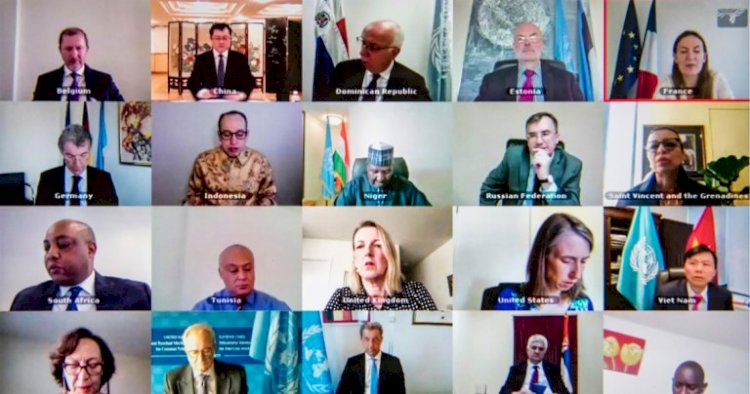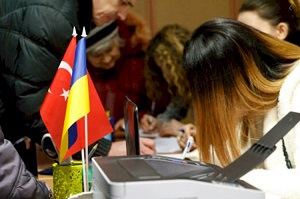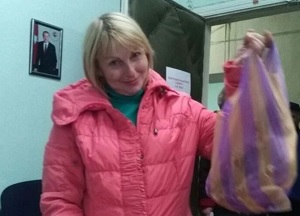A new term in the world politics: polypandemic
Striking examples in the MSC report

A new term in the world politics: polypandemic
The full title of the Munich Security Conference (MSC) report is “Polypandemic. Development, Fragility, and Conflict in the Era of Covid-19. The sentence used by MSC Chairman Wolfgang Ischinger in the introduction of the 80-page report released in November 2020 will suffice to explain the new term:
• “In a few short months, the coronavirus pandemic has become a polypandemic – a multifaceted crisis that threatens core development goals like equality and food security, but also endangers key democratic principles and international cooperation as a whole.”
The definition of this new concept goes far beyond the Covid pandemic that has started to hit economies in the first few months of 2020.
Multilateral organ failure
The impact was quite different from the Spanish Flu between 1918-1920, which killed nearly 40 million people, twice as many died in the First World War between 1914-1918.
At that time, the virus was again spreading across the borders accelerated by international travels, but the economy was not as global as it is today. Countries were not so connected through their supply chains and digital technology. This also applies to international political relations.
Thanks to advances in medicine, probably Covid-19 will not cause as much death as the Spanish Flu a hundred years ago. However, in the international political and economic system, there is a “multilateral organ failure” as described in the MCS report. From agricultural production to the increasing tendency of authoritarianism in democracies, from increasing inequality to disarrayed educational systems, there is almost no field that has not been affected.
Striking examples in the MSC report
• Hunger: Covid-induced increase in the number of people facing acute food insecurity is 100 percent.
• Inequality: The rate of death among white people due to corona in the US was 9 percent while 30 percent among People of Color. There were (on average) 29 physicians per 10,000 people in OECD countries where 3 in the least developed countries. (19 in Turkey, the worst among the OECD).
• Poverty: 495 million full-time jobs lost due to the pandemic in 2020. (More than 8 million are unemployed in Turkey despite restrictions on layoffs, according to official figures.)
• Authoritarianism: MCS says the global spike in government repressions between mid-March and the end of July was 30 percent. That includes cancellation or postponement of elections, pressures on physicians, and media.
• Education: 91 percent of students worldwide have been affected by school closures. 1.6 billion students were estimated to be out of school.
Options: change it or leave it
The report draws a worrying picture:
• “No part of the globe has remained unaffected by the socio-economic shock produced by Covid-19 and its grim effects on human livelihoods. Yet, some nations, societies, and people are struggling more than others.
• “At the moment there is a huge imbalance between (…) the human suffering and the threats to international peace and security that the pandemic might provoke. (…) Covid-19 has served as a magnifying glass for the mistakes of the past.
• “When it comes to fighting infectious diseases, the developed West has a lot to learn from developing states.
• “The international community now has two options: It can either continue on the track of underinvestment, thereby allowing the pandemic to exacerbate and embrace existing disparities and vulnerabilities. Or it can finally change course and embrace policies that understand solidarity as self-interest and protection as a strategic investment for the future.”
Three exit scenarios
The MSC report suggests three scenarios regarding the fight against the “polypandemic”.
Scenario one: Do-nothing scenario, letting it go except for daily precautions. The MSC predicts that this scenario will not only push millions more into poverty and hunger but will weaken democracies and increase the threat from “violent non-state actors.
Scenario two: The focus will be on saving lives and protecting livelihoods. Wealthy states need to extend the financial generosity to increase the long-term strength of those in need through support programs.
Scenario three: This is the MSC’s most preferred scenario. Because it envisages the rich countries to strengthen the economies and public health systems in need in cooperation and solidarity with others that will not be limited to the epidemic. Also, the strengthening of international cooperation institutions.
What changed the power holders’ minds?
What you have read so far is better suited to the discourses of the supporters of social justice, social marketers, or even social democrats, rather than those power holders who try to give direction to world politics? Was it just the Covid pandemic that has led those who have used to consider the world as winners-and-losers to start thinking about losers?
Not quite. Before Covid hit, the title of the Munich Security Conference meeting in February 2020 was “Westlessness”. Like polypandemic, it was a word coined according to shifting circumstances. On the one hand, there was the rise of China, the weakening of the EU with Brexit, and the increasing inequality and aggression of the USA in every sense under the Trump administration were telling about the fact that Western values might no longer stand as a set of references.
What are they saying now?
In this report, it is stated that inequalities are now threatening the interests and security of the rich. The option to suppress the situation with only financial and political power might make things worse and destroy democracies by strengthening authoritarian tendencies.
It is suggested that the rich should help reduce inequalities by putting their hands in the pocket of the joint struggle with Covid, and governments should also act accordingly. In this respect, the MSC report suggests that G-20 is “uniquely positioned” to lead the combat.
Turkey is also a member of G-20. The new political term of polypandemic gives an idea about what to do and what not to do to Turkey as well. It would be wise not to lag behind.
https://yetkinreport.com/en/2021/01/04/a-new-term-in-the-world-politics-polypandemic/
MURAT YETKİN






































